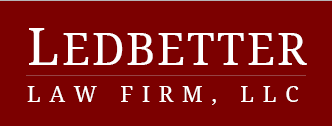Income taxes which are more than three years old may in many instances may be discharged in bankruptcy. Income taxes which don’t qualify for discharge and other types of taxes may be repaid in a Chapter 13 bankruptcy without additional penalties or interest accruing after the Chapter 13 bankruptcy case is filed.
Discharging Taxes in Bankruptcy
Taxes may be discharged in Chapter 7 bankruptcy or Chapter 13 bankruptcy if the following conditions are met:
1) The tax returns were filed at least two years prior to the filing of the Chapter 7 bankruptcy or Chapter 13 bankruptcy case for federal taxes. In the Eastern District of Missouri the taxes may have had to be filed at least three years prior to the filing of the Chapter 7 bankruptcy or Chapter 13 bankruptcy case.
2) The income taxes came due at least three years prior to the filing of the Chapter 7 bankruptcy or Chapter 13 bankruptcy case. Of course, taxes do not become due until April 15 of the following year. For example, 2009 income taxes did not become due until April 15 of 2010 and therefore could not be discharged under any circumstances in a Chapter 7 bankruptcy or Chapter 13 bankruptcy case filed before April 15, 2013.
3) The tax returns were not fraudulently filed and all income for the tax period was listed. Filing a tax return using a false Social Security number, for example, may result in taxes for that tax period not being dischargeable. If some income for the tax period was not listed on the original tax return, tax on that income will not be dischargeable unless an amended return adding the income was filed at least two years prior to the filing of the case for federal or filed at least three years prior to case filing for Missouri state income taxes in the Eastern District of Missouri.
4) The taxes must have been assessed not less than 240 days prior to the filing of the bankruptcy case or not assessed yet by the IRS in order to be dischargeable in a bankruptcy case. If the IRS suspended collection activity prior to the filing of the bankruptcy case, the time a client must wait before filing bankruptcy and discharging the tax debt will be extended. Also, the time a client must wait before discharging tax debt will be extended if the client had a prior bankruptcy case, which typically would arise if a client had a prior Chapter 13 bankruptcy case dismissed before filing the client’s current case.
Repaying Non-Dischargeable Taxes in Chapter 13
If taxes do not meet criteria for being discharged, a client may repay those taxes in full in a Chapter 13 bankruptcy case but with the elimination of any new interest or penalties accruing after the filing of the Chapter 13 bankruptcy case. Preventing new interest and penalties from accruing results in a very substantial tax savings.
